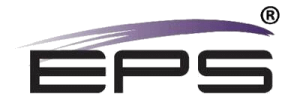Preparing for Job Interview (Back to Basics)
Your CV has received great feedback, you’ve passed the telephone screening and finally been invited to the job interview. However, it’s not time to celebrate just yet; there’s still a lot of work to be done before you land on the job. Job interviews can be stressful and nerve-racking but good preparation will make the process much easier for you. If you have a job interview coming up, Jobinterchange.com has gathered a useful step-by-step guide for simple yet effective preparation for your job interview. A few days before the job interview
A few days before the job interview
The days that lead up to your job interview are extremely important, as this is the time given to you to do your preparation work. Don’t leave everything until the night before, it’s not worth the risk.
Firstly, you need to ensure that you understand the company in detail, as 82% of interviewers will reject a candidate if they don’t understand the employer’s business at the interview stage. You need to understand what products or services they offer, who their customers are, the company culture, and who are their key people. You can use a number of channels to do your research including web searches, the company site, and social media. If the job role is being handled by a recruiter, you can also ask them for some inside job information such as what is the feedback of the candidates who have went for this interview before and what is the interviewer looking for particularly.
You also need to ensure that you fully understand the job role being offered, because if you don’t there is only a 5% chance that you will be offered the job. Study the job description and learn the goal of the job role, who you will be reporting to, tools and software required, and any product or service knowledge needed to perform the job role.
Once you are familiar with the company and the job role, you need to understand what makes you a good fit for the job role. Compare your CV with the job spec and make notes on how your experience, skills, and knowledge can match up. Doing this will enable you to answer any questions you may get asked that are related to job suitability.
Interviewers will usually be keen to ask about your weaknesses so take some time to learn your skills gaps and how you plan to work around them in the job role. If you have a significant journey to travel to the job interview, plan your journey a few days in advance and even look into back up routes in case there are travel delays on the day. If you have time, it may even be worth doing a practice journey, as being just 5 minutes late could cost you the job.
Practice answering some common interview questions so that they do not come as a surprise at the time of the job interview.
The 3 most popular job interview questions are:
1. Why should we hire you? 2. Why do you want this job? 3. Why are you looking out for new job opportunities? These questions will definitely arise in some form or another, so make sure you have some answers prepared.The night before the job interview
The night before the job interview should be fairly relaxed as you’ve done most of your preparation beforehand. Go over your preparation notes and the job spec to make sure it’s all fresh in your mind but don’t stress too much. Plan your outfit to avoid any wardrobe malfunctions in the morning and ensure that everything is washed and looks sharp. You should also pack a smart bag or folder with all your job interview essentials such as your CV, the job spec, educational certificates, personal identification card, testimonials, and job application form if any. You will also need to take note of the contact person’s details upon arrival so that you would not waste precious time trying to find who you should look for. Most healthy adults need between 7.5 and 9 hours of sleep to perform at their best so get to sleep as early as you can once you’re fully prepared.Share the article with your friends!
LinkedIn
Facebook
Twitter
EPS' Staffing Solutions
Have any questions? Please visit the below pages for more information about us!






